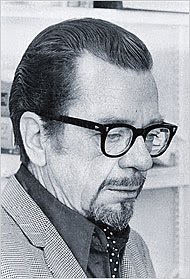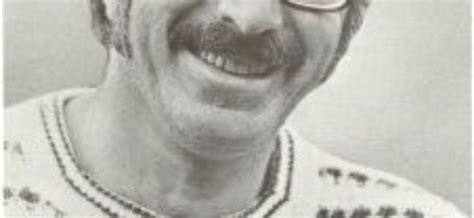A Quote by George Orwell
If he were allowed contact with foreigners he would discover that they are creatures similar to himself and that most of what he has been told about them is lies. The sealed world in which he lives would be broken, and the fear, hatred and self-righteousness on which his morale depends might evaporate.
Related Quotes
Men are less hesitant about harming someone who makes himself loved than one who makes himself feared because love is held together by a chain of obligation which, since men are wretched creatures, is broken on every occasion in which their own interests are concerned; but fear is sustained by dread of punishment which will never abandon you.
Two ideas are psychologically deep-rooted in man: self-protection and self-preservation. For self-protection man has created God, on whom he depends for his own protection, safety and security, just as a child depends on its parent. For self-preservation man has conceived the idea of an immortal Soul or Atman, which will live eternally. In his ignorance, weakness, fear, and desire, man needs these two things to console himself. Hence he clings to them deeply and fanatically.
In the daily lives of most men and women, fear plays a greater part than hope: they are more filled with the thought of the possessions that others may take from them, than of the joy that they might create in their own lives and in the lives with which they come in contact. It is not so that life should be lived.
This is that mystery which is rich in divine grace unto sinners: wherein by a wonderful exchange, our sins are no longer ours but Christ's; and the righteousness of Christ is not Christ's but ours. He has emptied himself of his righteousness that he might clothe us in it, and fill us with it: and he has taken our evils upon himself that he might deliver us from them.
God is not only to be known in His blessed and incomprehensible being, for this is something which is reserved for His saints in the age to come. He is also known from the grandeur and beauty of His creatures, from His providence which governs the world day by day, from His righteousness and from wonders which He shows to His saints in each generation.
The phrase, the world wants to be deceived, has become truer than had ever been intended. People are not only, as the saying goes, falling for the swindle; if it guarantees them even the most fleeting gratification they desire a deception which is nonetheless transparent to them. They force their eyes shut and voice approval, in a kind of self-loathing, for what is meted out to them, knowing fully the purpose for which it is manufactured. Without admitting it they sense that their lives would be completely intolerable as soon as they no longer clung to satisfactions which are none at all.
I don't think I would have been a good architect. Really, I have thought about this from time to time, and I might have wound up like my father, who never did find that which he could devote his life to. He sort of drifted from job to job. He was a traveling salesman, he was a bookkeeper, he was an office manager, he was here, there, there. And however enthusiastic he was at the beginning, his job would bore him. If I hadn't had the writing, I think I might have replicated what he was doing, which would not have been good.
However dangerous might be the shock of a comet, it might be so slight, that it would only do damage at the part of the Earth where it actually struck; perhaps even we might cry quits if while one kingdom were devastated, the rest of the Earth were to enjoy the rarities which a body which came from so far might bring it. Perhaps we should be very surprised to find that the debris of these masses that we despised were formed of gold and diamonds; but who would be the most astonished, we, or the comet-dwellers, who would be cast on our Earth? What strange being each would find the other!
Yet, after all, faith is not our righteousness. It is accounted to us in order to righteousness (Rom 4:5, GREEK), but not as righteousness; for in that case it would be a work like any other doing of man, and as such would be incompatible with the righteousness of the Son of God; the righteousness which is by faith. Faith connects us with the righteousness, and is therefore totally distinct from it. To confound the one with the other is to subvert the whole gospel of the grace of God. Our act of faith must ever be a separate thing from that which we believe.
It seems to me that the moralist is the most useless and contemptible of creatures. He is useless in that he would expend his energies upon making judgments rather than upon gaining knowledge, for the reason that judgment is easy and knowledge is difficult. He is contemptible in that his judgments reflect a vision of himself which in his ignorance and pride he would impose upon the world. I implore you, do not become a moralist; you will destroy your art and your mind.
The act of writing bears something in common with the act of love. The writer, at his most productive moments, just flows. He gives of that which is uniquely himself. He makes himself naked, recording his nakedness in the written word. Herein lies some of the terror which frequently freezes a writer, preventing him from producing. Herein, too, lies some of the courage that must be entailed in letting others learn how one has experienced or is experiencing the world.







































